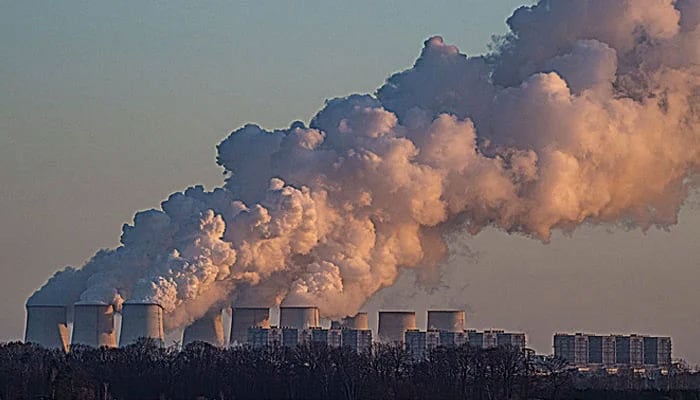Next generation NDCs
February 10, 2025
Countries, including Pakistan, are set to announce new national climate commitments this month under the Paris Agreement. These commitments, known as nationally determined contributions (NDCs), serve as the foundation of global climate action, setting emissions reduction targets and other measures that nations pledge to implement.
The Paris Agreement mandates that countries submit updated commitments every five years, with each round more ambitious than the last. However, the previous ones remained insufficient to prevent worsening climate impacts and limit global temperature rise to 1.5 degrees Celsius.
This is happening in parallel to the first round of Biennial Transparency Reports (BTRs) submissions by parties to the Paris Agreement is currently underway. As of January, 89 parties, accounting for approximately 74 per cent of global emissions, had submitted their BTRs. These reports provide critical insights into how countries are implementing the Paris Agreement and tracking progress toward their Nationally Determined Contributions (NDCs). They include details on policies and measures adopted, as well as information on national adaptation efforts and the climate impacts experienced.
It is true that the urgency for bold national climate action has never been greater. Many countries have now set targets to reach net-zero emissions by or around 2050. The new NDCs should also reflect insights from last year’s Global Stocktake, a UN assessment that highlights gaps in current climate policies and calls for a transition away from fossil fuels, along with transformative changes in transportation, food systems, agriculture, and other key sectors.
According to Climate Watch, Pakistan is the world’s 21st largest emitter, accounting for 0.93 per cent of global emissions. In its 2021 updated commitments, Pakistan pledged to reduce projected emissions by 50 per cent by 2030, with 15 per cent as an unconditional target and 35 per cent dependent on international support. However, given the escalating frequency and intensity of climate impacts, these commitments need further reinforcement.
It is critical for us that our next-generation NDCs must align with three essential long-term mitigation objectives: achieving net-zero emissions, implementing Long-Term Low Emission Development Strategies (LT-LEDS), and contributing to the global 1.5 C goal. It is equally crucial to establish clear, ambitious targets in key sectors such as energy, food systems, agriculture, and land use, Considering the country’s minuscule volume of its emissions share, strengthening adaptation measures to address escalating climate impacts is equally vital for driving the rapid and large-scale transformation needed to mitigate climate risks and achieve net-zero emissions.
Sector-specific targets not only provide a framework for domestic policymaking and strategic planning but also help shape policies that attract investment and accelerate implementation. By setting these targets, we can send strong signals to key stakeholders, including investors, fostering the necessary financial support and commitment to successfully implement the commitments.
For Pakistan, where climate impacts are intensifying – ranging from heatwaves and erratic rainfall to long-term threats like sea level rise and desertification – it is more critical than ever to strengthen adaptation and resilience-building efforts. This requires identifying national and local priorities, such as ensuring climate-resilient food and agricultural systems, enhancing resilience to climate-related health risks, and mitigating the impacts of climate change on ecosystems and biodiversity.
Achieving these goals necessitates active engagement with local communities to identify opportunities for adaptation and implement effective measures that keep pace with worsening climate challenges. The current revision process presents a vital opportunity to involve the most vulnerable communities and indigenous groups in shaping national adaptation strategies. Inclusive stakeholder participation ensures that investments in adaptation and climate-resilient development are targeted, effective, and aligned with local needs.
Similarly, this revision presents an opportunity to prioritise loss and damage, highlighting areas where adaptation limits may be exceeded. It is crucial to provide detailed insights into the financial costs, technical requirements, and capacity needs necessary to address the most severe climate impacts. This includes outlining national efforts in disaster risk reduction, humanitarian assistance, rehabilitation and migration, as well as addressing slow-onset events such as biodiversity loss and the erosion of cultural heritage.
The new NDCs must go beyond commitments and provide a clear framework for implementation. This requires coordinated efforts across government ministries, national and provincial authorities, the private sector, and civil society, supported by policies, institutions and finance. Successful implementation demands a whole-of-government approach, leveraging the process to strengthen climate governance and drive political action.
Legal frameworks, cross-government coordination and integration of climate considerations into planning, policy, finance and legislation are essential. The document should clearly assign implementation responsibilities to relevant ministries. Establishing strong legal and institutional foundations will be key to achieving ambitious climate goals.
Since effective NDC implementation relies heavily on investment and financing, integrating NDC targets, policies and institutional measures into national and sectoral plans can help attract the necessary funding to fulfil commitments. This requires well-defined strategies to mobilise financial resources, both domestically and internationally. Clear financing plans not only enhance the credibility of NDC targets but also facilitate their execution. A well-structured NDC revision can position Pakistan to access international climate finance, such as the Green Climate Fund (GCF) and the Loss and Damage Fund, by showcasing viable investment opportunities in mitigation and adaptation initiatives.
Given the far-reaching impacts of climate change and the potential benefits of addressing it, the revised document must establish clear connections to key aspects of people’s lives, including jobs, health, and local economies. Integrating these issues into climate policies is essential to maximise economic, social, and developmental opportunities while managing challenges such as job losses in the fossil fuel sector or shifts in land use.
Considering these factors is also crucial for fostering public and political support for stronger climate action. The commitments need to contain quantitative goals on objectives such as access to high-quality green jobs, health improvements through pollutant reduction, and equitable access to renewable energy and sustainable transport.
Likewise, including children and youth in climate decision-making is essential to enhance grassroots climate action, ensuring that NDCs are socially inclusive and widely supported.
It is essential that the revised document balance mitigation and adaptation while aligning with national development goals. Given the country’s high climate vulnerability, adaptation should be a priority, focusing on disaster risk reduction, climate-smart agriculture, and sustainable water resource management. Mitigation efforts should centre on transitioning from fossil fuels to renewable energy sources like solar, wind, and hydro, with clearly defined targets for expanding renewable capacity.
As urbanisation continues unabated, we need sustainable city initiatives – such as electrified public transport, energy-efficient buildings, and improved waste management – that need to be prioritised. Forest conservation, mangrove restoration, and large-scale afforestation projects must also be expanded and fully integrated into the NDC strategy.
Pakistan’s revised commitments must address its unique vulnerabilities, integrate ambitious yet realistic climate goals, and ensure international financing and technological support. A well-structured revision will enable Pakistan to meet its climate obligations while fostering sustainable development.
The writer is a climate governance expert. He tweets/posts @razashafqat and can be reached at: razashafqat@yahoo.com
Search
RECENT PRESS RELEASES
Related Post




